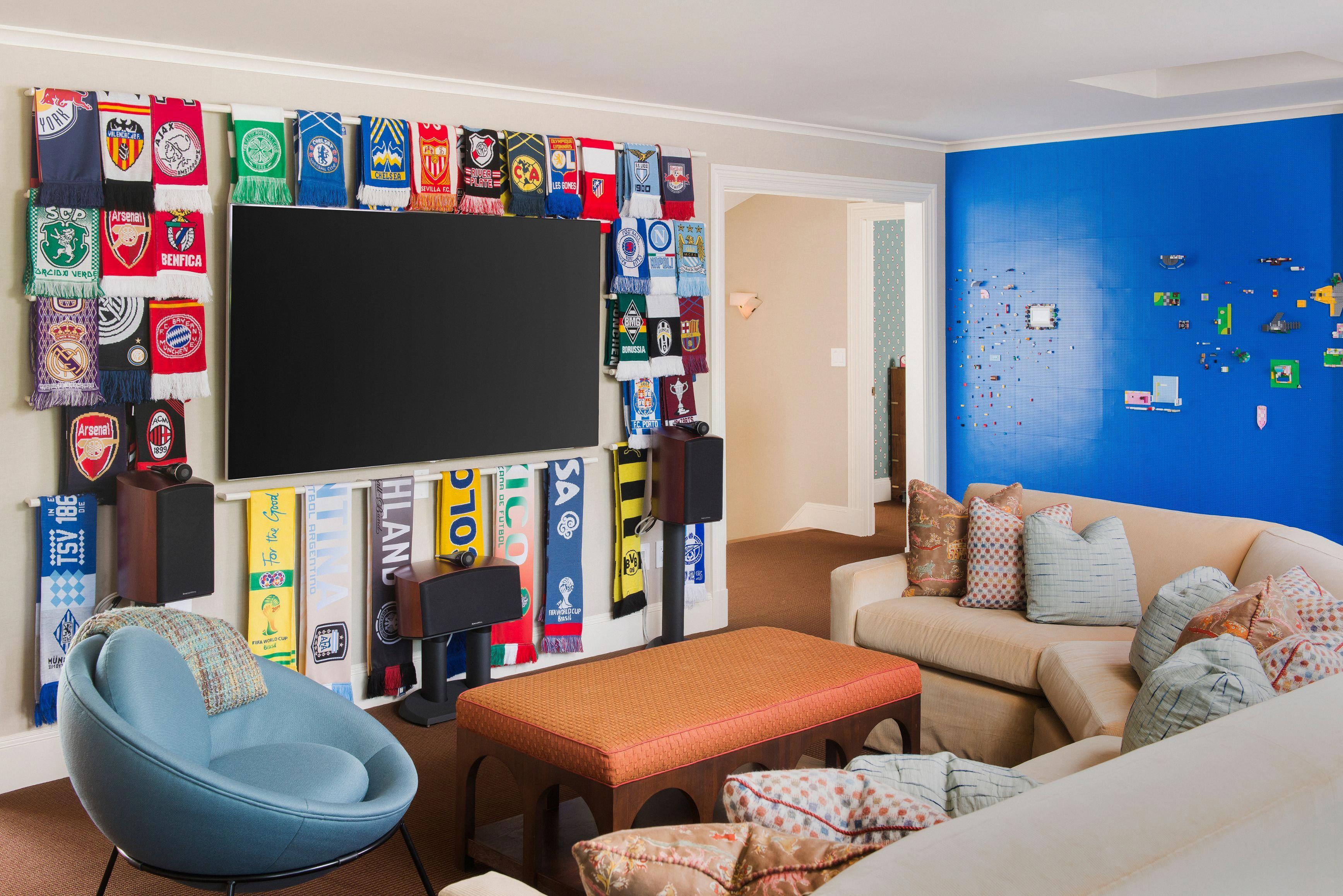Television has become an integral part of our lives today. While it is a great source of entertainment and information, it can also have a negative impact on our health, especially among children. As parents, it is our responsibility to ensure that our children have a healthy relationship with technology, and this includes having a TV in their room.
When it comes to deciding if your child should have a TV in their room, there is no one-size-fits-all answer. It ultimately depends on your child’s age, maturity level, and your own family values. However, it is generally recommended to wait until your child is in their teens before considering adding a TV to their room.
If you do decide to add a TV to your child’s room, there are a few things to keep in mind. First, choose the right size and type of screen. You can opt for a big 65-inch set or a smaller 32-inch screen. You can choose between an HDTV or an LCD model, or even a TV that’s both high-definition and kid-friendly.
However, it is important to limit your child’s screen time, even if they have a TV in their room. The American Academy of Pediatrics recommends that children aged 2 to 5 should have no more than one hour of screen time per day, while children aged 6 and older should have no more than two hours per day. It is also important to ensure that your child is getting enough physical activity and sleep.
Having a TV in the bedroom can lead to isolation, less physical activity, and poor sleeping habits. It is important to encourage your child to engage in other activities, such as reading, playing outside, or spending time with family and friends.
Research has shown that too much time watching TV alone in their room as a preschooler can lead to mental and physical health problems in adolescence. This includes being overweight, poor eating habits, and emotional struggles. Therefore, it is important to monitor your child’s TV viewing habits and ensure that they are not spending too much time in front of the screen.
Deciding whether to add a TV to your child’s room is a personal decision that should be made based on your child’s age, maturity level, and family values. If you do decide to add a TV, it is important to choose the right size and type of screen and to monitor your child’s screen time and other activities. By doing so, you can help ensure that your child has a healthy relationship with technology and a balanced lifestyle.
At What Age Is It Appropriate for Kids to Have a TV in Their Room?
Research suggests that it is not recommended for kids to have a TV in their room until they reach their teenage years, which is typically around 14 years old. This is because TVs can have a negative impact on children’s sleep, attention spans, and overall health. Additionally, having a TV in their room may encourage kids to spend more time alone and less time engaging in family activities or other important social interactions. Ultimately, the decision of when to allow a child to have a TV in their room should be based on individual family circumstances and the child’s maturity level.

What Size TV Is Best for a Child’s Room?
When it comes to choosing the right size TV for a child’s room, there are a few factors to consider. First and foremost, you’ll want to consider the size of the room itself. If the room is on the smaller side, a larger TV may be overwhelming and take up too much space. On the other hand, if the room is quite large, a smaller TV may not provide the best viewing experience.
A good rule of thumb is to choose a TV that is proportional to the size of the room. For example, a 32-inch TV may be a good choice for a smaller bedroom or playroom, while a 40-inch or 50-inch TV may work better in a larger space.
Another factor to consider is the age of the child. Younger children may not need a larger screen size as they may not be able to fully appreciate the benefits of a larger screen. In this case, a smaller TV may be a better choice.
Ultimately, the best size TV for a child’s room will depend on the specific needs and preferences of your child and your family. It’s important to consider both the size of the room and the age of the child when making your decision.
Is Having a TV in a Child’s Bedroom Appropriate?
According to experts, having a TV in a kid’s bedroom may not be a good idea. It can lead to isolation, less physical activity, and poor sleeping habits. Kids may be more likely to spend time watching TV instead of engaging in social activities or exercising. Moreover, the blue light emitted by screens can interfere with the production of melatonin, a hormone that regulates sleep, making it harder for kids to fall asleep.
To promote healthy habits, it is recommended to limit screen time to two hours a day or less. Kids should engage in at least an hour of daily moderate-to-vigorous exercise and get between nine and 11 hours of sleep a night. Having a TV in the bedroom may make it harder for kids to meet these goals.
Therefore, it is advisable to keep TVs out of kids’ bedrooms and encourage them to engage in other activities that promote their physical and mental health.
Should a Two-Year-Old Have a Television in Their Room?
Research suggests that allowing a 2-year-old to have a TV in their room may not be beneficial for their mental and physical health. Watching TV for extended periods can lead to developmental delays, poor sleep patterns, and obesity. It can also cause emotional struggles, as children may become over-stimulated or desensitized to violence and other negative content.
Additionally, having a TV in their room may limit a child’s social interactions, physical activity, and cognitive development. It is recommended that parents limit their child’s screen time and supervise their media consumption, including not allowing TVs in their bedrooms. Instead, parents can encourage other activities such as reading, playing, and spending time with family and friends.
It is not recommended for 2-year-olds to have a TV in their room due to the potential negative effects on their physical and mental health, social interactions, and cognitive development.
Conclusion
Having a TV in a kid’s room can be a double-edged sword. On the one hand, it can provide entertainment and a sense of privacy. On the other hand, it can lead to isolation, poor sleeping habits, and less physical activity. Therefore, it is important to be mindful of the amount of screen time children have and to encourage other activities such as exercise and outdoor play. When deciding to purchase a TV for a kid’s room, it is best to wait until they reach their teens and to choose a size and type that is appropriate for their age and needs. Ultimately, balance is key to ensuring that a TV in a kid’s room does not negatively impact their physical and mental health.








